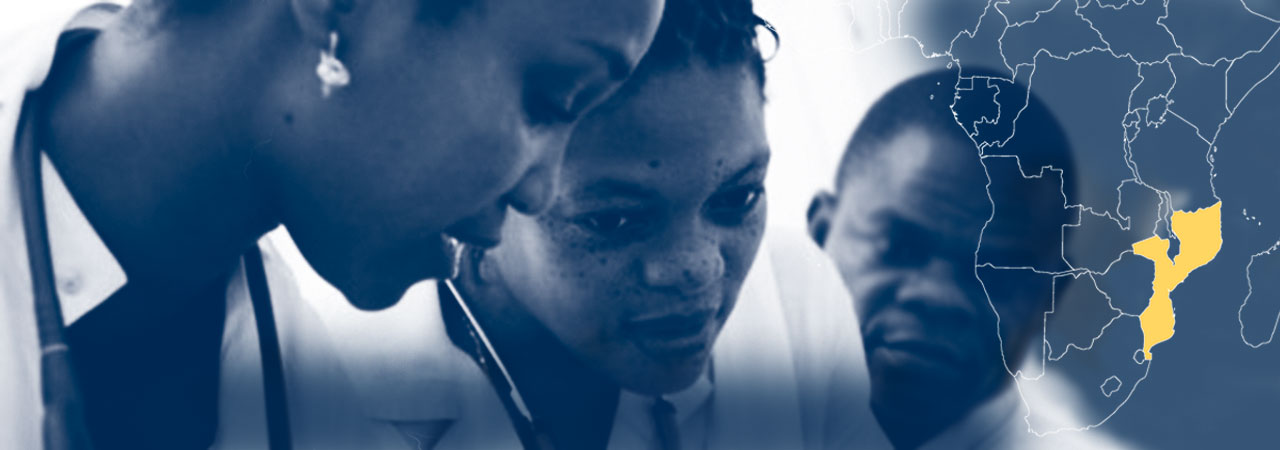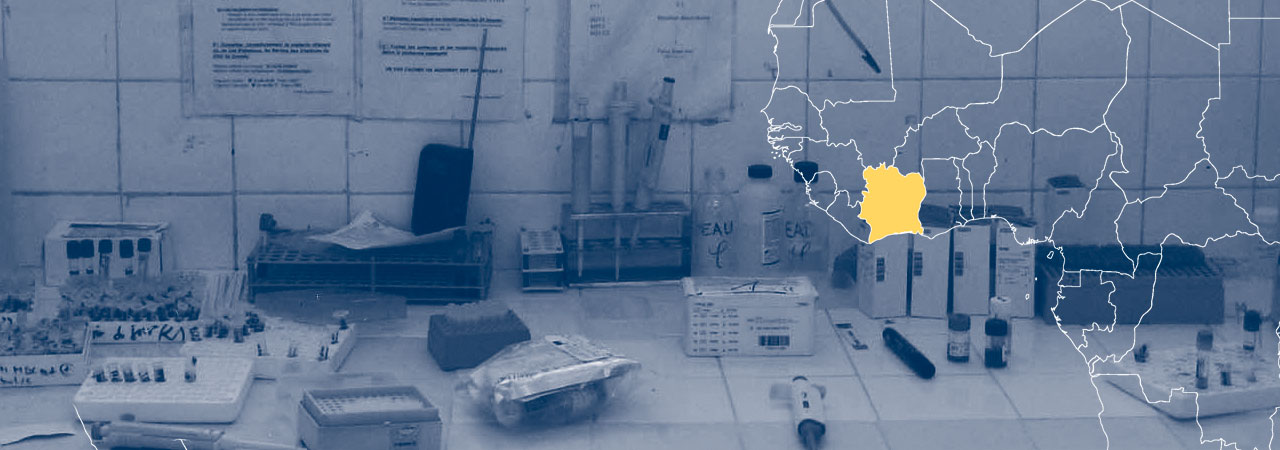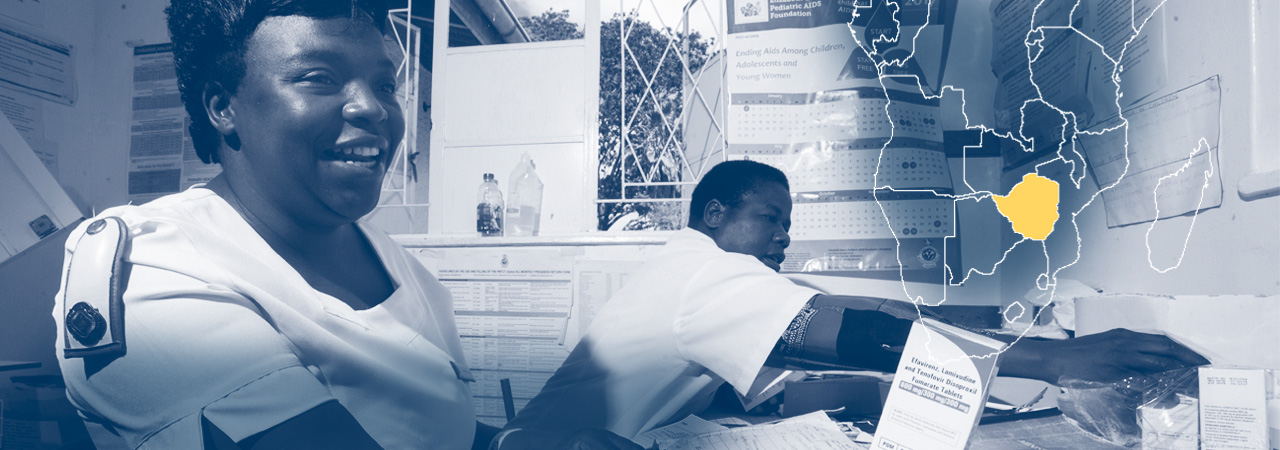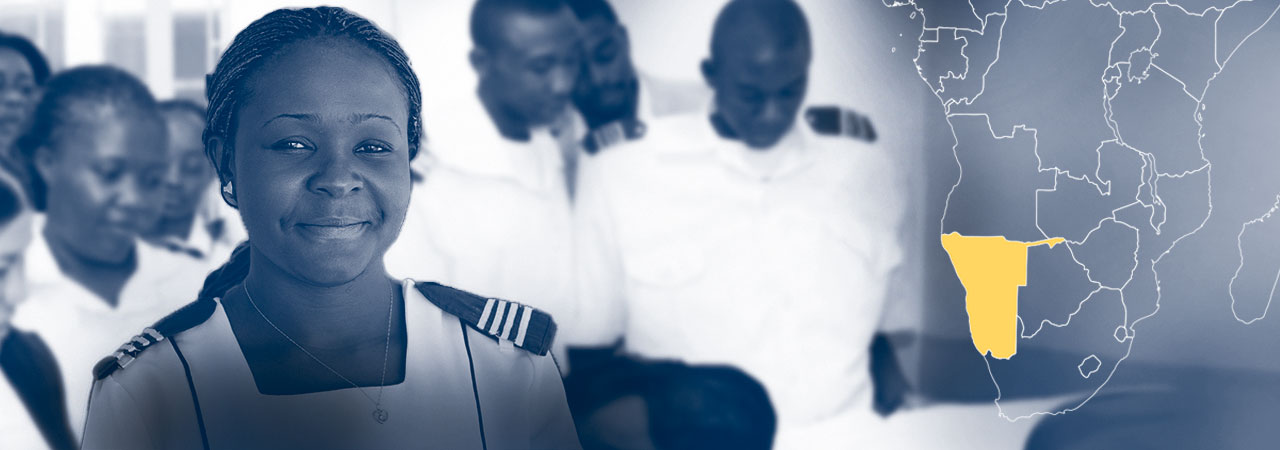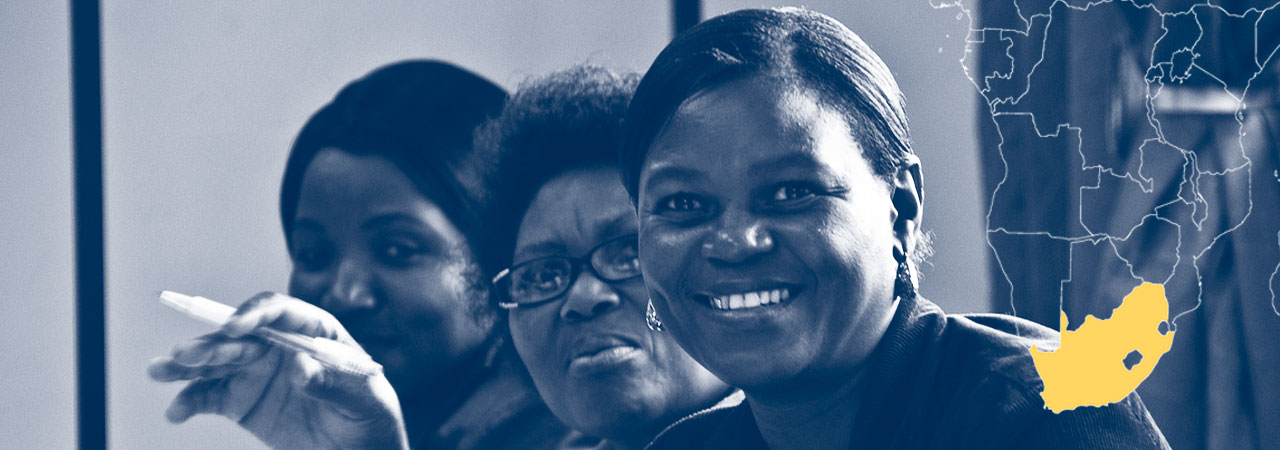The Government of Botswana has made a strong national commitment to fighting HIV, and was one of the first countries in Africa to launch a nationwide response to the HIV epidemic and to offer free antiretroviral treatment to its citizens living with HIV. The estimated HIV prevalence in Botswana is 21.9% among population aged 18 months and older, which is down from over 25% a decade ago. There are currently about 360,000 people living with HIV, and of those, more than 300,000 are on treatment. [UNAIDS 2017].
In 2003, I-TECH began to partner with the Government of Botswana to combat HIV and has continued to work closely with the Ministry of Health and Wellness (MOHW), the U.S. Centers for Disease Control and Prevention (CDC) Global AIDS Program, and local and international partners to respond to the health needs of the people of Botswana.
With I-TECH support, the MOHW has made great strides in HIV Testing Services; laboratory systems continuous quality improvement; monitoring and evaluation of HIV and tuberculosis; health informatics; and operations research. I-TECH Botswana has been providing direct service delivery and technical assistance in support of the Government of Botswana’s health priorities, specifically targeting the first 90 of the UNAIDS 90-90-90 goals—that 90% of the population knows their status. Sustainable transition to local ownership is a key component of all work conducted by I-TECH Botswana.
In 2020, I-TECH launched the Botswana Training and Education Center for Health (B-TECH), an independent, locally registered organization. Through funding from HRSA, CDC, and the US President’s Emergency Plan for AIDS Relief (PEPFAR), I-TECH and B-TECH work in close partnership to implement programs such as improving direct service delivery and continuous quality improvement approaches; providing cervical cancer screening, treatment, and care; and developing and maintaining a national COVID-19 vaccine registry.
Current Program Highlights
Past Programs
Mozambique has one of the fastest growing economies in sub-Saharan Africa. Since the end of a 17-year civil war in 1992, leaders have worked to leverage country resources to build infrastructure and improve the quality of life for Mozambican citizens. Despite this promising growth, many public-sector programs are under-resourced, and much of the population still has limited access to quality health care.
With a population of 24 million, Mozambique has fewer than four physicians for every 100,000 inhabitants. More than 1.4 million people are estimated to be infected with HIV. The population also has high rates of tuberculosis and other respiratory diseases, malaria, and diarrheal diseases such as endemic cholera, all of which worsen the impact of HIV and AIDS when there is co-infection.
Drawing on expertise from its global network, including the University of Washington and the University of California, San Francisco, I-TECH began working in Mozambique in 2005. Since then, its technical support to the Ministry of Health (MISAU) has been focused on addressing the shortage of health care providers in the country through clinical training and curriculum revision and development. I-TECH also works to improve the quality of HIV prevention, care and treatment services, including antiretroviral treatment (ART) and voluntary medical male circumcision (VMMC). Ongoing monitoring and evaluation (M&E) activities, including technical assistance to MISAU, measure the effectiveness of health care programs and provide quality data for decision-making and program improvement.
Program Highlights
Since 2009, the University of Washington’s International Training and Education Center for Health (I-TECH) has worked with the US Centers for Disease Control and Prevention and the Côte d’Ivoire Ministry of Health and Public Hygiene (MSHP) to strengthen laboratory information systems at the national and regional levels. I-TECH laboratory support to Côte d’Ivoire aims to develop and implement targeted interventions designed to support expanded use of laboratory information systems and their data for decision making. With I-TECH support, adoption of an open-source electronic laboratory information system (eLIS) has already resulted in improved efficiency and accuracy of laboratory data collection and reporting. Over 50 national, regional, and general hospital laboratories across Côte d’Ivoire have implemented eLIS systems.
In 2021, I-TECH began a five-year cooperative agreement with the United States Health Resources and Services Administration under the US President’s Emergency Plan for AIDS Relief (PEPFAR) to begin implementing the Quality Improvement (QI) Solutions for Sustained Epidemic Control (QISSEC) project, which aims to improve data quality and strengthen capacity to help close HIV-related service delivery gaps across clinics and communities throughout Côte d’Ivoire.
Current Program Highlights
Past Programs
Photo credit: Macpherson Photographers
There are an estimated 1.3 million people living with HIV/AIDS in Zimbabwe and the country is severely impacted by this disease. For the past 16 years, I-TECH has worked collaboratively with the Ministry of Health and Child Care (MoHCC) and other partners to strengthen the HIV response in Zimbabwe. I-TECH works together with local implementing partners and supports activities across the entire continuum of care from HIV prevention activities to HIV testing, immediate linkage to care and treatment services, management of opportunistic infections and retention in care and viral suppression.
In 2003, I-TECH began working in Zimbabwe by conducting an assessment of need and capacity for clinical and other HIV-related training in collaboration with Zimbabwe’s National AIDS and Tuberculosis Programs. With funding from HRSA, the US Centers for Disease Control and Prevention (CDC) and the US President’s Emergency Plan for AIDS Relief (PEPFAR), I-TECH provided a decade of technical support and assisted with the development of multiple training programs, evaluations, and laboratory systems strengthening.
In both 2013 and in 2018, CDC and PEPFAR awarded funding for I-TECH to continue and expand its work supporting the country’s HIV epidemic-control efforts through 2023.
In 2018, I-TECH Zimbabwe transitioned to the independent Zimbabwe Training, Technical Assistance and Education Center for Health (Zim-TTECH). Together, I-TECH and Zim-TTECH build local ownership and sustainability through collaborations throughout Zimbabwe. Under the CDC and PEPFAR awards, I-TECH and Zim-TTECH lead two consortia: ZAZIC and ZimPAAC.
Program Highlights
I-TECH has worked in Namibia since 2004 to support a robust and sustainable health care system, and to address key health challenges including high HIV prevalence and a critical shortage of skilled health care workers.
Based in the capital city, Windhoek, I-TECH in Namibia has a long history of successfully supporting the Ministry of Health and Social Services (MoHSS); the Ministry of Education, Arts, and Culture; the University of Namibia; and the Ministry of Defence/Namibia Defence Force with programs to improve the prevention, care, and treatment of HIV. I-TECH’s flagship work in Namibia included the training of physicians, pharmacists, nurses, and community counselors in a wide range of subjects including sexually transmitted infections, tuberculosis, and pediatrics. In 2015, the program has expanded its focus to include direct service delivery across the HIV clinical continuum including multiple prevention programs such as DREAMS, pre-exposure prophylaxis (PrEP), and voluntary medical male circumcision (VMMC).
Successes include the establishment of nurse-initiated and managed ART services, support of the use of distance learning technologies (digital video conferencing, Project ECHO) to train Namibia’s dispersed health workforce, and delivery of VMMC services aimed at keeping boys and men HIV-negative. In 2017, I-TECH began implementing HIV prevention activities aimed at keeping adolescent girls and young women HIV-negative, including through the provision of PrEP.
I-TECH has also implemented a successful national survey focusing on the health and wellness of adolescents and young adults in Namibia in partnership with the Ministry of Gender Equality and Child Welfare, UNICEF, MoHSS, Namibia Statistics Agency, and the U.S Centers for Disease Control and Prevention.
Program Highlights
I-TECH has supported the South African Government’s National Department of Health (NDoH) to strengthen its community health workers (CHWs) program so that it promotes linkage, adherence, and retention in HIV care and treatment. The program also aimed to improve HIV care and treatment, and patient outcomes by addressing knowledge and skills gaps that result in low performance related to HIV Care and Treatment indicators.
I-TECH collaborated with the NDoH, district support partners (DSPs), and educational institutions to implement a CHW skills development program to train over 22, 000 CHWs, making strides toward achieving the UNAIDS targets.
I-TECH in South Africa has helped strengthen in-service learning platforms for the training and professional development of health care workers, including SkillSMART and the Knowledge Hub.
Continue reading “Health Information Systems in South Africa”
I-TECH supported Regional Training Centers (RTCs) across provinces in South Africa to increase their capacity to coordinate in-service trainings, with an emphasis on reaching the 90-90-90 targets. I-TECH strengthened the capacity of RTC management to coordinate, consolidate, implement and evaluate training activities and supported the rollout of national priority programs such as adult primary care; training initiatives to enable nurses to deliver tests and offer services, and develop the capacity of RTCs to promote alternative service delivery models, particularly adherence clubs. Additionally, I-TECH supported the National Department of Health (NDoH) through the RTCs to roll out a national recruitment and retention strategy and in-service learning strategy, to ensure appropriate human resources for health within public health service. I-TECH also provided continuous technical support for the development of a distance learning program and supported the recruitment and placement of technical personnel at NDoH to support RTCs and offer logistical support for quarterly training review stakeholders meetings.
I-TECH South Africa supported the development, implementation, and evaluation of a comprehensive sensitization and capacity development pilot intervention with the following objective: sensitize clinical and non-clinical staff at the primary care and community levels on issues related to stigma and discrimination as they relate to five key populations (men who have sex with men, people in prisons and other closed settings, sex workers, people who inject drugs, and transgender people).
The Republic of South Africa is working to meet the health challenges facing its people, which include a high HIV prevalence compounded by high incidences of sexually transmitted infections (STIs) and tuberculosis.
In 2003, at the request of the National and Provincial Departments of Health and the U.S. Centers for Disease Control and Prevention’s Global AIDS Program, I-TECH began work in South Africa to support the government’s Operational Plan for Comprehensive HIV and AIDS Care, Management, and Treatment.
In anticipation of National Health Insurance, the key health initiatives in South Africa currently focus on strengthening the primary health care system to provide greater access to quality care to the most vulnerable populations and to reach the UNAIDS 95-95-95 goals.
I-TECH in South Africa has worked with government and community leaders, individuals, and communities to improve the effectiveness and sustainability of the South African national HIV, STI, and tuberculosis responses. In all of its efforts, I-TECH has placed an emphasis on program assessment, monitoring and evaluation, and continuous quality improvement with sustainable local involvement to ensure programs can transition to local entities.
Current Program Highlights
Past Programs

